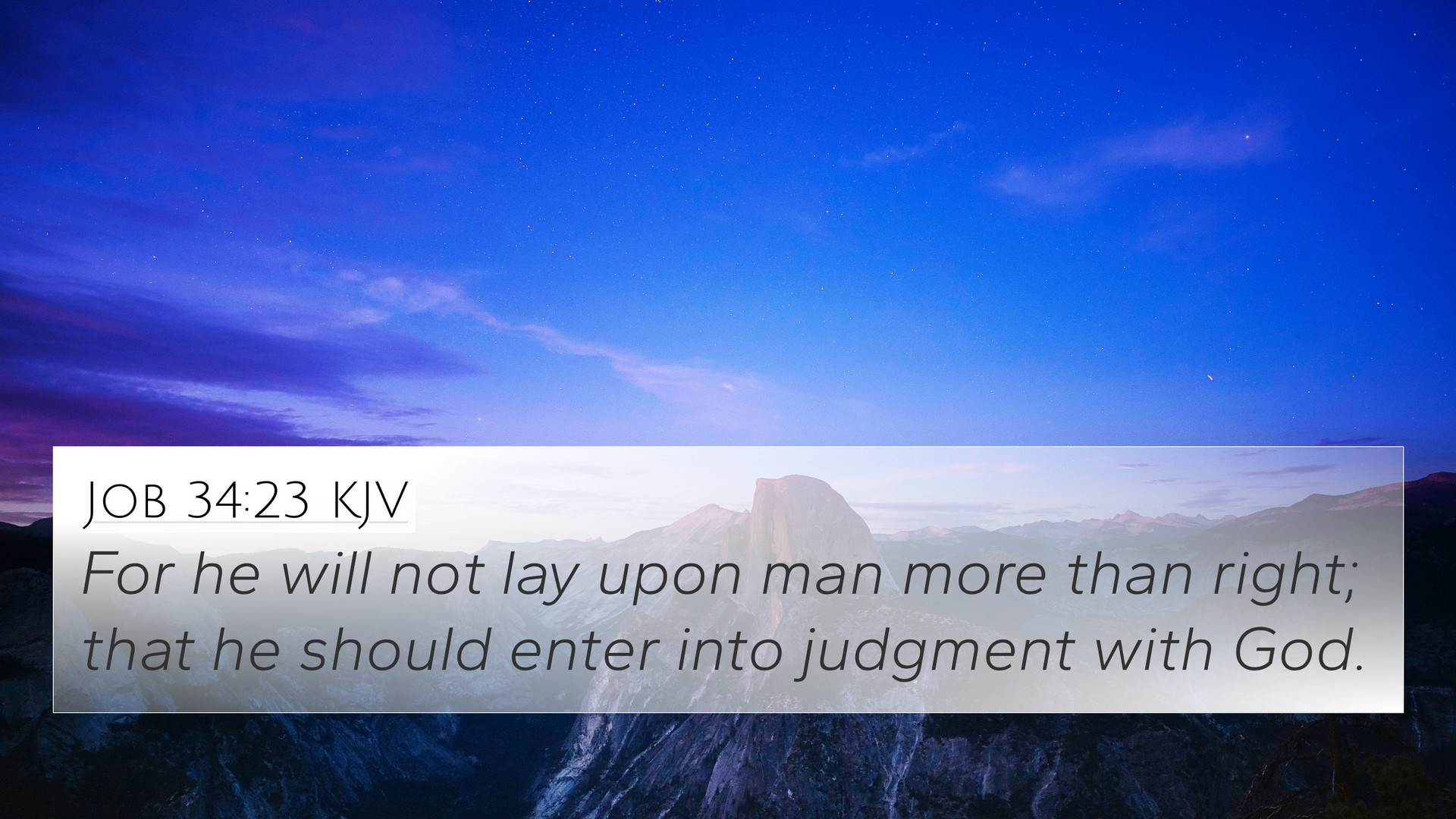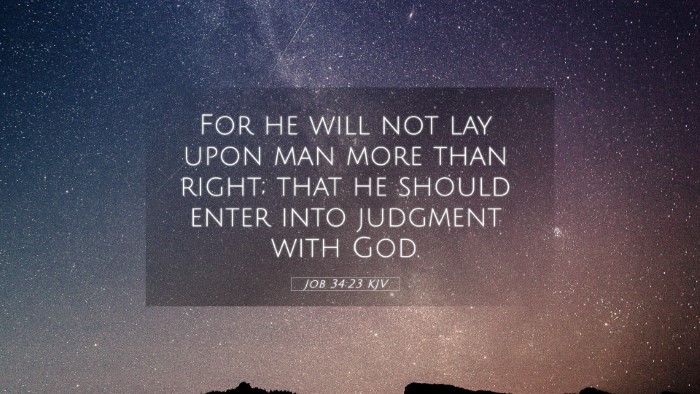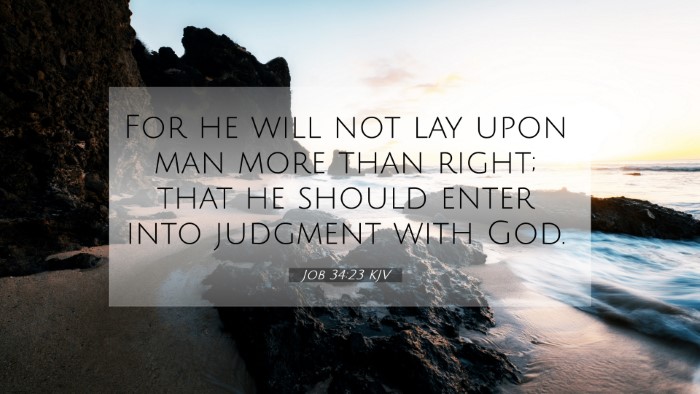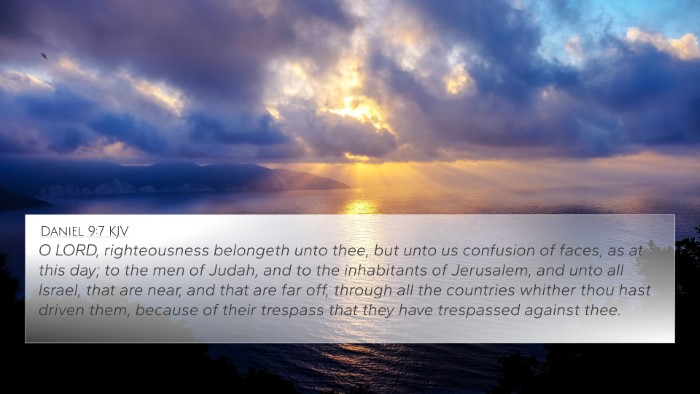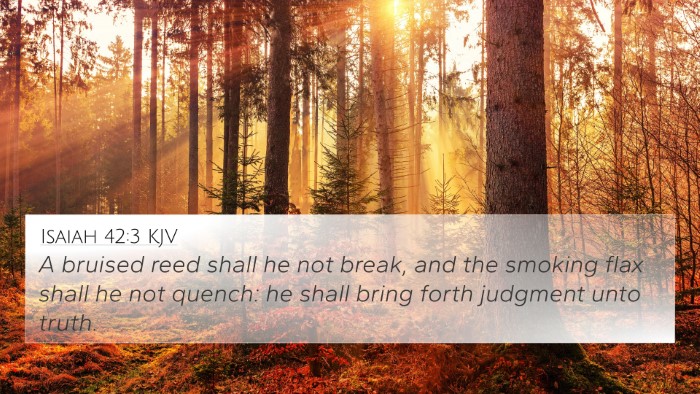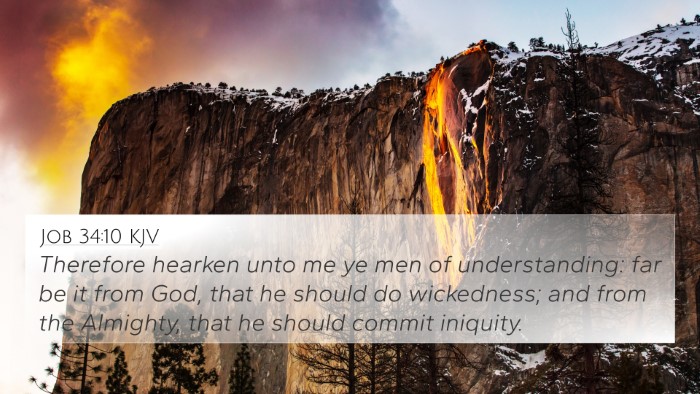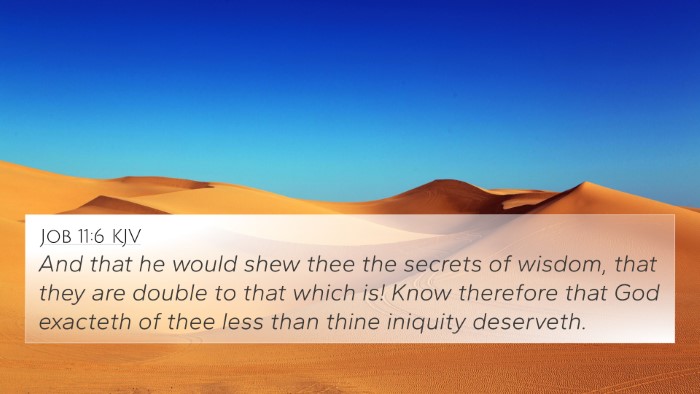Understanding Job 34:23
Job 34:23 states: "For he will not lay upon man more than right; that he should enter into judgment with God." This verse is a profound statement about the nature of God's justice and the assurances that the divine judgment is inherently fair and based upon righteousness. Below, we explore the insights gathered from various public domain commentaries, primarily those by Matthew Henry, Albert Barnes, and Adam Clarke.
Contextual Analysis
This verse appears in the dialogue of Elihu, who is articulating God's fairness in judgment and the criteria by which God assesses humanity. Elihu emphasizes that God's governance is aimed at rectifying and instructing His creation rather than punishing indiscriminately.
Commentary Insights
- Matthew Henry: Henry points out that God's judgments are just, implying that humans are not to be overly burdened in their trials. This verse reassures believers that God knows their limitations and will not impose more than they can bear. Moreover, it stresses the fairness of God, contrasting human judgment, which may often be biased and uninformed.
- Albert Barnes: Barnes elaborates on the idea that God acts with constraints in His dealings with humanity. He notes that God's justice is absolute, and His evaluation will always be grounded in truth. This verse reassures the believer that while they may face difficulties, these afflictions are measured against their ability to endure them. God's judgments are intended to teach and improve, rather than to bring despair.
- Adam Clarke: Clarke emphasizes the moral aspect of God's judgment as reflective of His holiness. He observes that the divine essence does not allow for arbitrary or excessive judgments. Clarke also states that God assesses the heart and motives of individuals before passing judgment, which affirms the deeply personal and loving nature of God's governance.
Cross-Referenced Verses
In exploring the connections between Bible verses related to Job 34:23, we find several scriptures that echo its themes of God's justice and human accountability:
- Psalm 103:10: "He has not dealt with us according to our sins, nor punished us according to our iniquities." This reflects God's mercy and fairness in judgment.
- 1 Corinthians 10:13: "No temptation has overtaken you except what is common to mankind. And God is faithful; he will not let you be tempted beyond what you can bear." This verse parallels the notion that God understands human limits.
- Romans 2:6: "He will repay each person according to what they have done." This indicates that divine scrutiny is based on one's actions, reinforcing the theme of justice.
- Matthew 7:2: "For in the same way you judge others, you will be judged, and with the measure you use, it will be measured to you." Here, the reciprocal nature of judgment is highlighted.
- Isaiah 30:18: "Yet the Lord longs to be gracious to you; therefore he will rise up to show you compassion." This illustrates God's desire for fairness and mercy in judgment.
- 2 Corinthians 5:10: "For we must all appear before the judgment seat of Christ, so that each of us may receive what is due for us, for the things done while in the body, whether good or bad." The accountability of individuals in divine judgment is stressed.
- Hebrews 12:6: "Because the Lord disciplines those he loves, and he chastens everyone he accepts as his son." This speaks to the idea that God’s actions stem from love and a desire for correction rather than punishment.
Themes and Connections
Job 34:23 provides a thematic framework of divine justice, fairness, and the love underpinning God's judgments. The verse encourages believers to trust in God's knowledge of our individual circumstances and weaknesses. It serves as a reminder that even judgment is an expression of His righteousness and care.
Prayerful Reflection
As we reflect on the meanings behind Job 34:23, consider how you can approach God's justice with trust and surrender. Acknowledge God's understanding of your personal trials and ask for strength to endure and wisdom to comprehend His teachings in times of difficulty.
Conclusion
Job 34:23 reminds believers of God's unwavering justice. By comparing and referencing other Scripture, we enrich our understanding of how divine principles are consistently upheld throughout the biblical narrative. The interconnectedness found within the Scriptures enhances our study approach, enabling us to uncover deeper spiritual truths.
Incorporating tools for Bible cross-referencing can aid in the continual exploration of these themes. Utilize resources like a Bible concordance or a cross-reference guide to discover further connections that enrich your knowledge and understanding of God's word.
